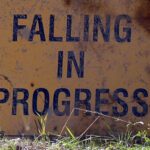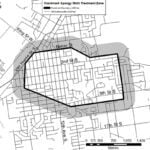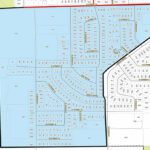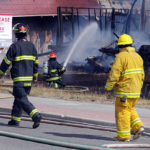Home »

Leave newborn wildlife in the wild
When it comes to newborn wild animals, mother always knows best, and so with fawning and calving season underway provincial biologists are reminding people that newborn deer, elk or moose should not be touched or moved when encountered.
People who find these newborns alone often mistakenly believe they have been abandoned, but usually they have only been left there temporarily by their mother, who will return. Intervening in these situations by ‘rescuing’ the fawn or calf is rarely necessary and will usually do more harm than good.
It is normal for mother deer, elk and other ungulates to leave their young alone for long periods, returning a few times a day to nurse and relying on the newborn’s lack of scent to protect them from predators.
Returning mothers that find humans or pets nearby may leave or can become aggressive to defend their offspring from the perceived threat. The mother will return if the young is left alone.
Although these newborns may appear abandoned, it is rarely the case, and if they are removed they will be orphaned. While professional wildlife rehabilitation facilities in some areas of B.C. can successfully rear these newborns, there is no maternal care and their chances of survival are far less than if they had been raised by their true mother.
This is true not just for deer; many mammals leave their young alone for long periods of time, only to return to feed them at regular intervals.
So, if you encounter a young deer or calf in the wild at this time of the year, appreciate the experience, but don’t approach or intervene.
If you find a fawn or calf that you think may be orphaned, here’s what you should do:
* If it is lying quietly, leave it alone and leave the area. Your presence will discourage the mother from returning.
* Keep all children and especially dogs away from the area.
* If you think the fawn or calf is not being cared for by its mother, return the next day to check. If it is in the exact same spot, it may be injured or orphaned. Contact a wildlife rehabilitator as soon as possible, but do not touch or move the animal.
* Do not touch or feed the animal.
To find a wildlife rehabilitator near you, visit the Wildlife
Rehabilitators Network of British Columbia at: http://www.wrnbc.org/contact/find-a-local-rehabilitator/
Ministry of Forests, Lands and Natural Resource Operations







